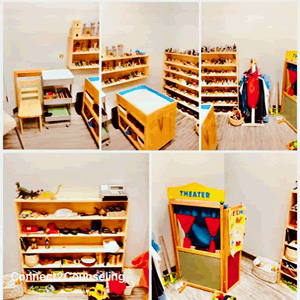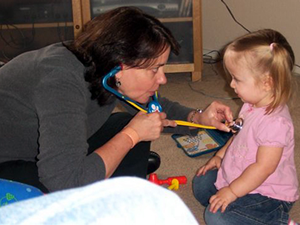 Sally E. James
Sally E. JamesM.A., L.P.C.-S., N.C.C.
Connect2Counseling Today!
Play Therapy Services for Children Under 8

When children experience difficulties, play therapy provides an opportunity for them to work through them in an accepting, non-judgmental play therapy setting. Adults find relief in talking over difficulties with an understanding therapist. Usually children cannot express their thoughts and feelings in words, but can find release through various forms of play.
Children use toys as words to express feelings and release anxieties. According to Dr. Garry Landreth in his book Play Therapy: The Art of the Relationship, “toys are used like words and play is their language.”

Child-centered play therapy facilitates inner emotional healing, growth and children’s belief in themselves. In order to ensure the privacy of your child’s play therapy experience, it’s best not to ask your child for an accounting of the session afterward. Occasionally your child may bring home a drawing or painting or other object made in the playroom. It’s best not to praise it as a masterpiece, question what it represents, or make suggestions for technical improvements. If your child offers it to you it’s best to casually accept it without much comment.
Finally, if you need to share important recent events and information with the therapist, it’s best to call to discuss this beforehand rather than during the play therapy visit. It is important for your child to have the therapist’s full attention during the visit to the office.

